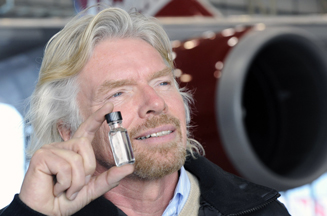
Take pity on the Apple PR machine: no amount of technological wizardry or innovation at last week's Macworld show in San Francisco was ever going to draw media attention away from the persistent rumours about the health of the brand's chief executive, Steve Jobs. The fact that it had already been announced that he would not be at the event, and it would be Apple's last year in attendance, did not help.
His company's share performance has been mixed since Jobs announced he had been diagnosed with pancreatic cancer in 2004, such is his association with the brand, even though he has never appeared in its marketing. Investors once again became spooked by Jobs' visible weight-loss in 2008, as well as his admission earlier this month that this had been caused by a hormone imbalance that had proved difficult for his doctors to diagnose.
Apple's products are no weaker as a result of these periodic spells of 'investor wobble', but the cult of Jobs' personality is so strong that his health has become intrinsically linked to the fortunes of the company; given Apple's predicament, then, it is reasonable to question how sensible a strategy it is to select a chief executive or founder as a public brand ambassador.
Although Virgin founder Sir Richard Branson provides the classic example of this strategy being used successfully, in more recent years online brands have also sought to exploit the stories and personalities of their founders - think Facebook's Mark Zuckerberg or Google's Sergey Brin and Larry Page - partly, at least, to compensate for a lack of tangible presence.
Paul Charles, a spokesman for Virgin Atlantic, claims the 'Branson effect' has been instrumental to Virgin's success. 'Founders as brand ambassadors are invaluable,' he says. 'They help communications and sales, and transmit brand values from the top down. At some point Sir Richard will no longer be there, but we're confident the strength of the brand is in its products.'
According to Paul Houlding, managing partner at ad agency Isobel, the use of senior management to front a brand is a high-risk but high-reward strategy. 'Vision and personality are incredibly important in brands,' he says. 'Vision is easy enough to replace, but not personality in culture. People buy into brands, and analysts looking at Apple are panicking because they can't see who is ready to take [the Apple brand] forward.'
However, there are instances where a boss can damage their brand. Ryanair chief executive Michael O'Leary, for example, is no stranger to controversy. Justin Francis, managing director of ResponsibleTravel.com, is one who believes O'Leary's abrasive personality can cause problems for the brand.
'I don't think that being a bigger personality than a brand or becoming a "celebrity" is necessarily a problem, but there comes a time for all strong leaders to move on,' he says. 'There will be significant consolidation in the aviation sector, and if [O'Leary's] style restricts Ryanair's ability to create deals, then it will be his time to move on.'
Planning for the inevitable
It is one thing to be the public face of a brand and make key announcements. It is quite another to appear in the brand's advertising. This was, at one time, fairly common. Bernard Matthews would promote his 'bootiful' turkey products, while Victor Kiam's iconic appearances in Remington ads are still remembered today. Now, how-ever, even Virgin Atlantic refrains from such practices; Branson is conspicuously absent from its 25th birthday ad campaign.
Richard Sunderland, managing director at branding consultancy Heavenly, believes such ads belong to a bygone era. 'It has had its day - it feels a bit 70s now,' he says. 'Those individuals with the vanity have now found other platforms to raise their profiles, like Sir Alan Sugar with The Apprentice. It may work in the early days of a brand, but later on it feels slightly gratuitous.'
Building any brand predominantly on the drive and personality of its owner creates the problem of how to fill the void when he or she departs. As Apple is finding to its cost, all brands need to plan for the day that their leader is no longer there to stand up for their interests. After all, even the best-laid plans may fail to cope with the loss of the icon that created the brand in the first place.

